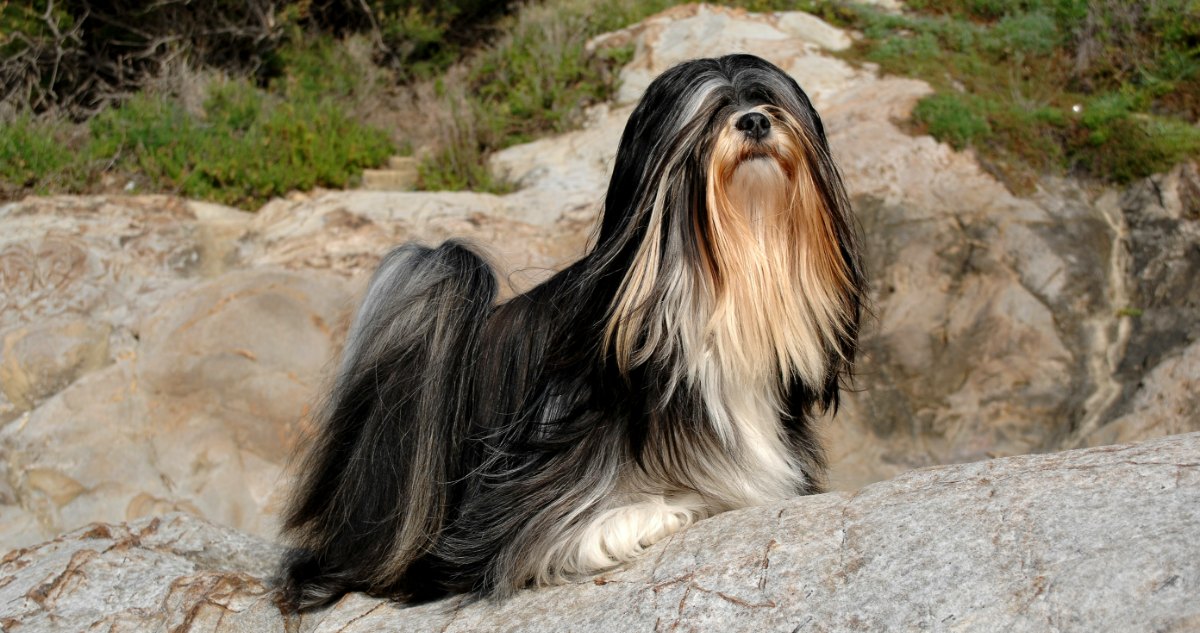 Shutterstock
Shutterstock
All dogs require regular grooming, but certain breeds need more frequent baths due to their coat type, skin conditions, or tendency to get dirty easily. Breeds with oily skin, thick coats, or a love for outdoor play often need extra attention to keep their fur clean and healthy. Regular baths help control odor, prevent skin irritations, and manage excessive shedding. For these dogs, consistent grooming and bathing are essential to maintaining their overall health, staying comfortable, and keeping their coats looking fresh and beautiful year-round.
Basset Hound
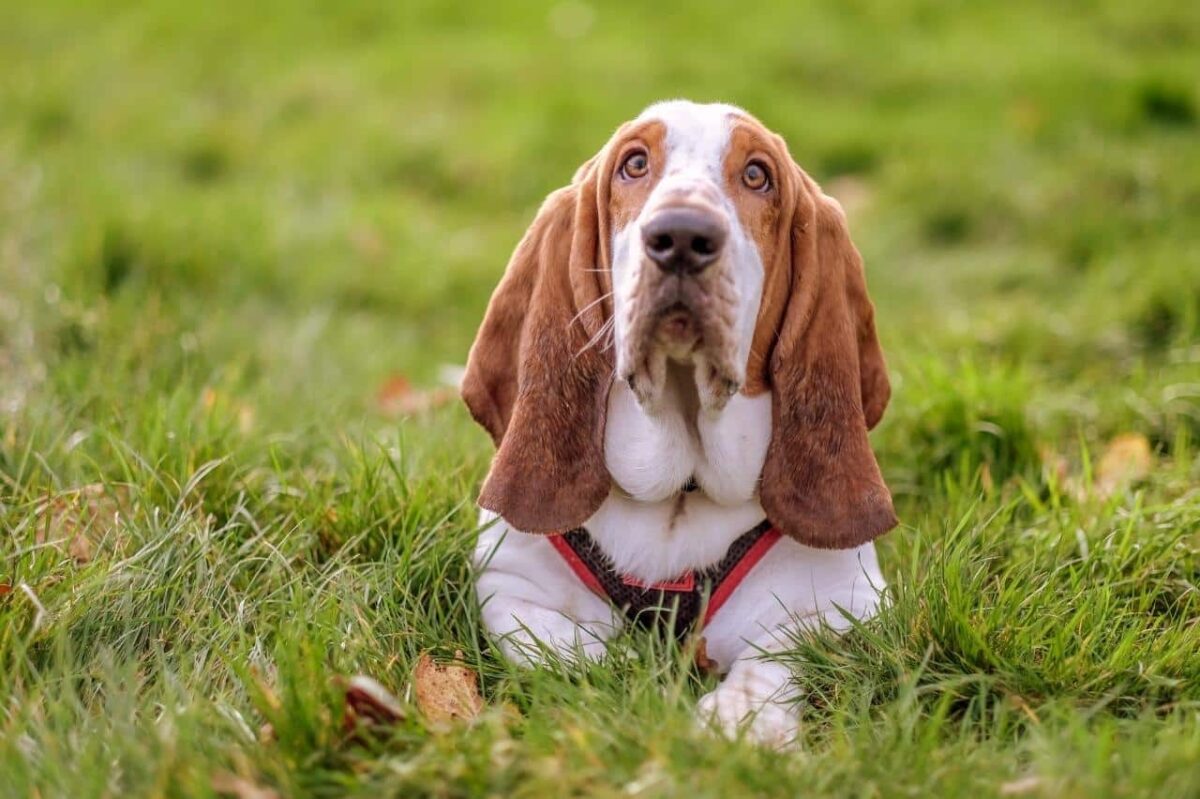 Shutterstock
Shutterstock
Basset Hounds are known for their distinctive appearance, with long ears, droopy skin, and short legs. However, their loose skin and short coat can produce a strong “doggy odor” if not bathed regularly. Basset Hounds also have oily skin, leading to a greasy coat if not washed frequently. Their wrinkles and folds trap dirt and moisture, which can cause skin infections if not properly cleaned. Bathing a Basset Hound every two to four weeks helps control odor and keeps their skin healthy, especially in the folds where dirt accumulates.
Cocker Spaniel
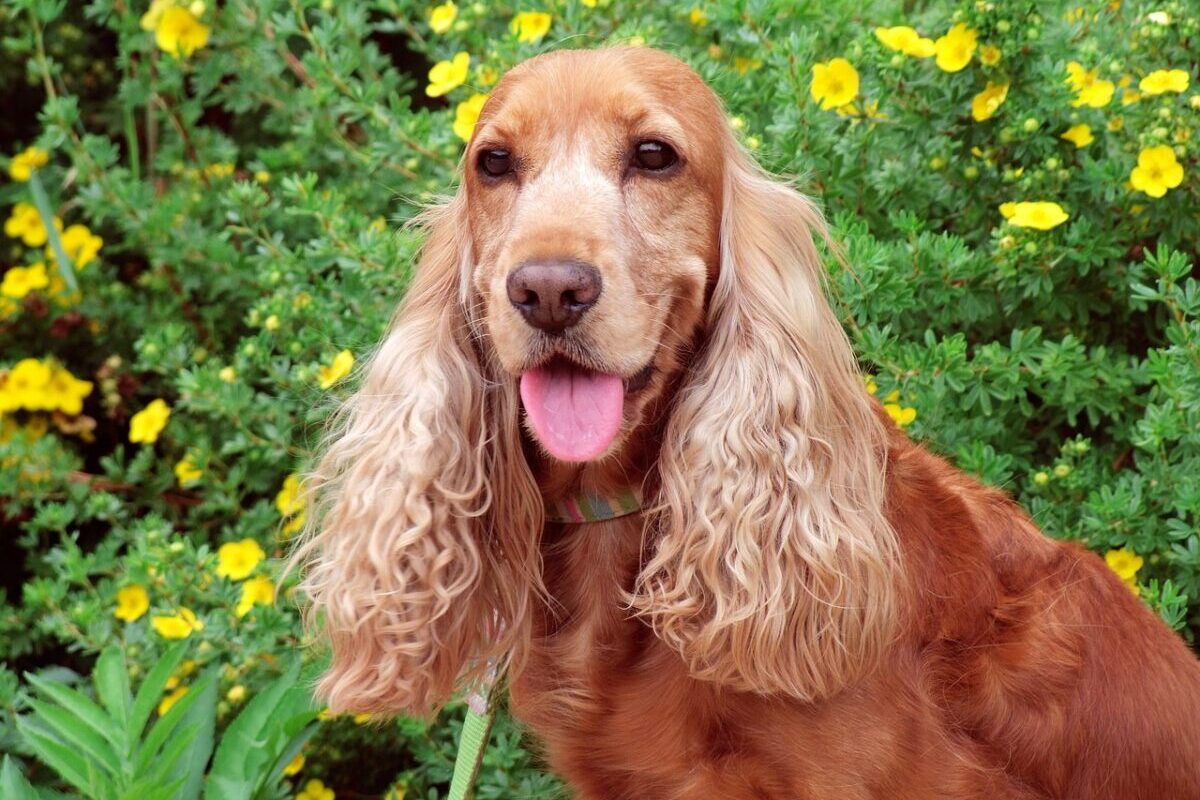 Shutterstock
Shutterstock
Cocker Spaniels have beautiful, silky coats, but maintaining that luxurious fur requires frequent bathing and grooming. Their coats are prone to becoming oily, especially around the ears, and they are also susceptible to skin irritations and infections. Cocker Spaniels often need baths every two to four weeks to remove excess oil and prevent matting. Since their ears are long and close to the ground, they are more prone to ear infections, so it’s important to clean and dry their ears during every bath to prevent problems.
Shih Tzu
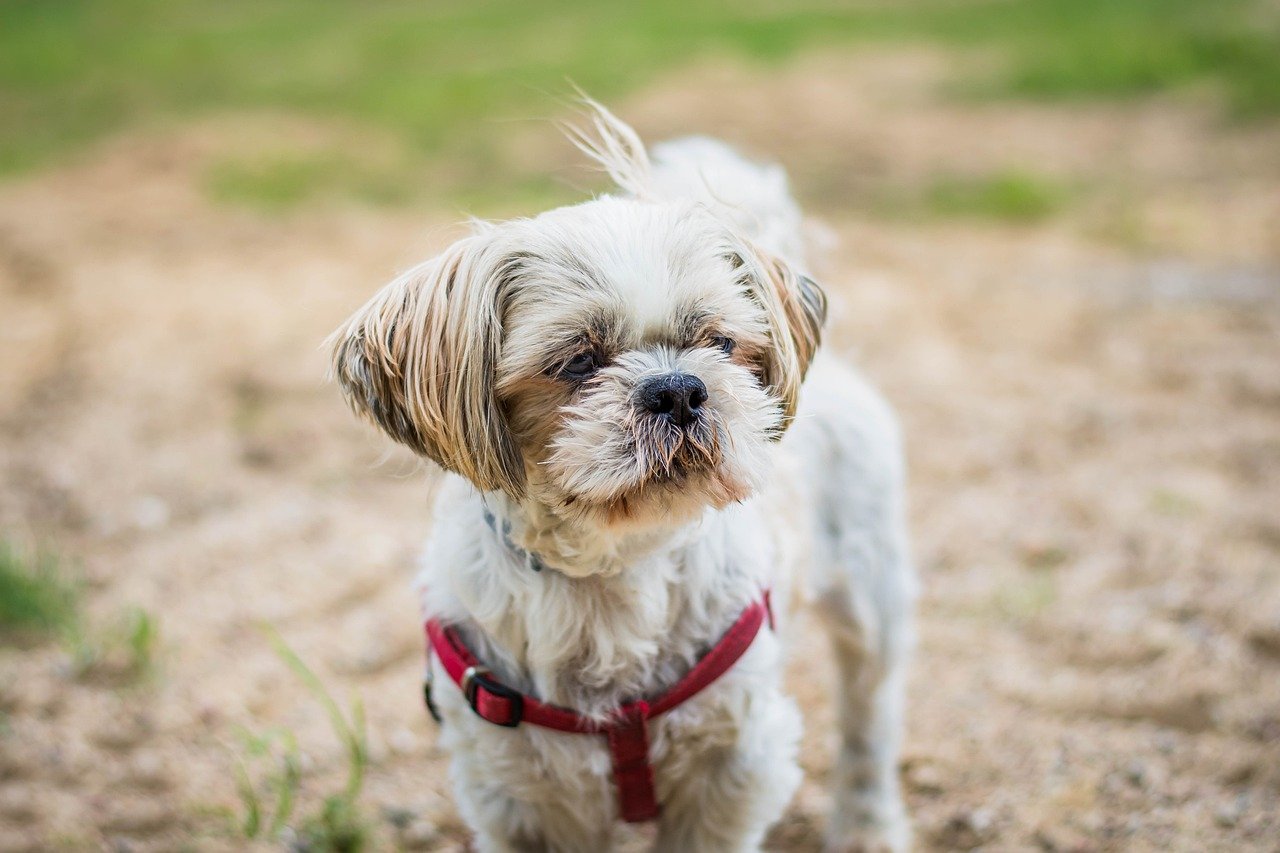 Shutterstock
Shutterstock
Shih Tzus are a small breed with long, flowing hair that requires consistent care to stay clean and healthy. Their coats are prone to matting, and they produce natural oils that can make their fur greasy if not cleaned regularly. Bathing a Shih Tzu every two to three weeks helps remove dirt, tangles, and excess oils, keeping their coats silky and soft. For Shih Tzus that live in humid or dusty environments, more frequent bathing may be necessary to prevent skin irritations and matting.
Bulldog
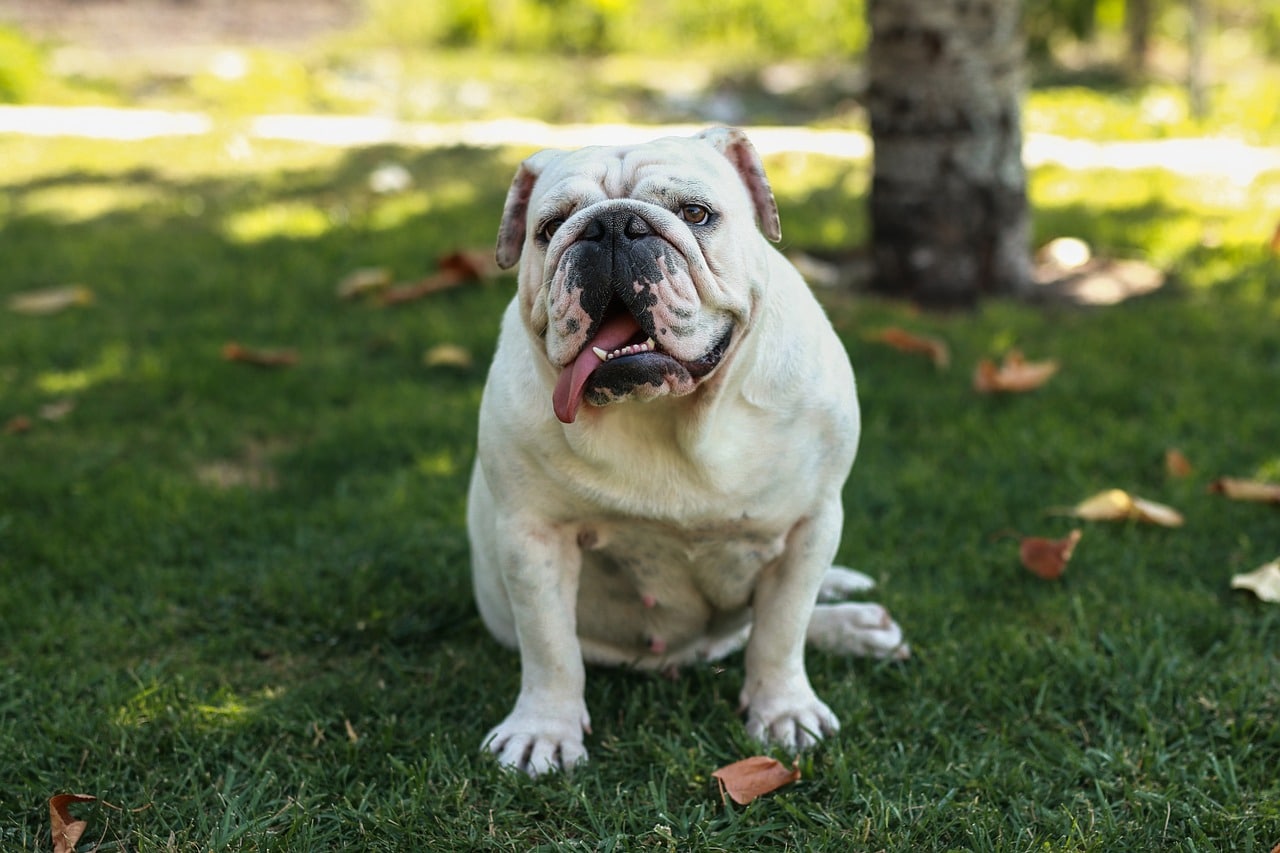 Shutterstock
Shutterstock
Bulldogs are known for their stocky build and wrinkled skin, which requires regular maintenance to avoid odor and infections. Their skin folds trap moisture, dirt, and bacteria, leading to skin issues if not cleaned thoroughly. Bulldogs benefit from a bath every three to four weeks to keep their skin and coat healthy. After bathing, it’s crucial to dry between their skin folds to prevent moisture from causing infections. Regular cleaning helps prevent the “bulldog smell” and keeps their coats fresh and clean.
Poodle
 Shutterstock
Shutterstock
Poodles, whether Standard, Miniature, or Toy, are known for their hypoallergenic, curly coats that require regular grooming and bathing. Their tight curls trap dirt and oils, leading to matting if not properly maintained. Poodles need baths every three to four weeks to keep their coats clean and free from mats. After a bath, their curls should be thoroughly brushed and dried to maintain their texture and prevent tangling. Regular grooming and frequent baths are essential to keep a Poodle’s coat healthy and beautiful.
Maltese
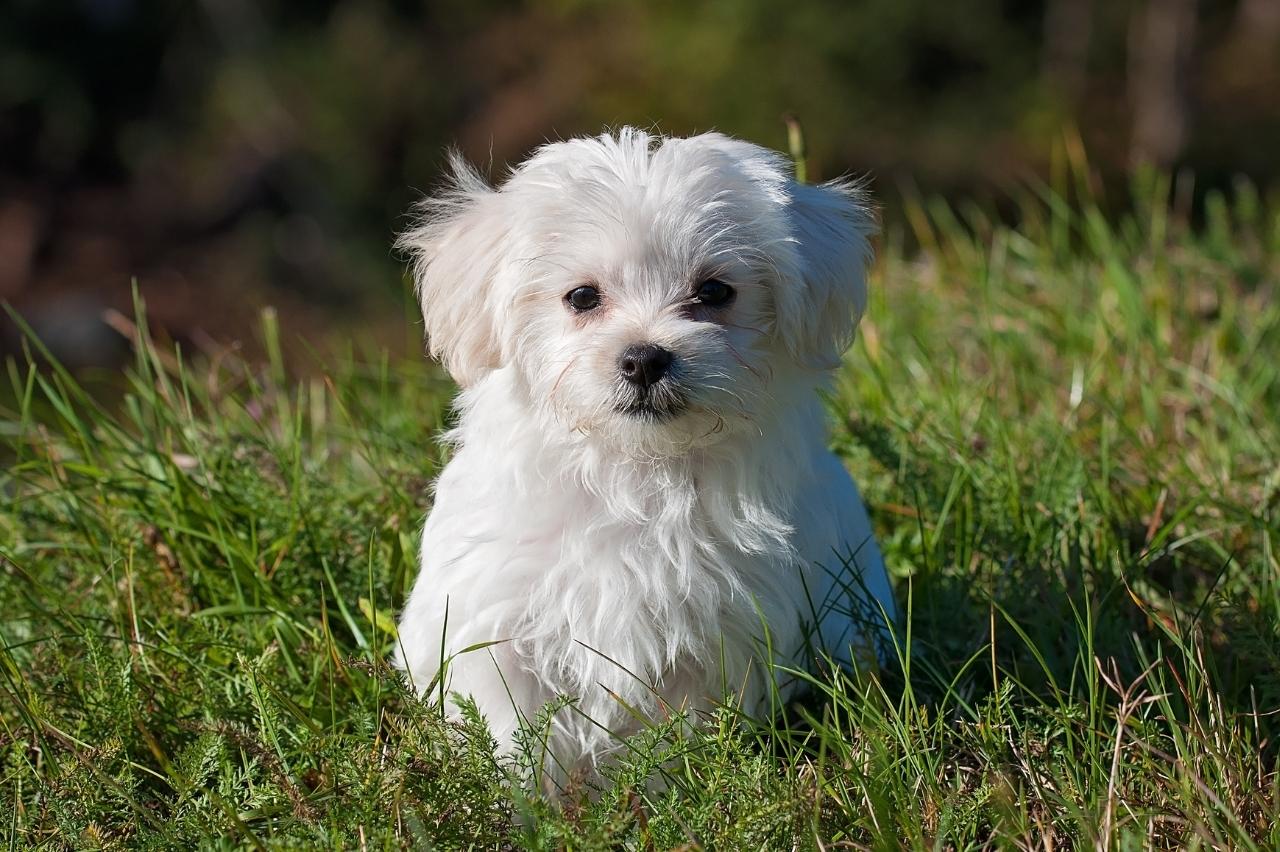 Shutterstock
Shutterstock
Maltese dogs have long, silky coats that need regular attention to prevent matting and tangling. Their fine hair is prone to becoming dirty, especially since their white coats easily show dirt and stains. Maltese should be bathed every two to three weeks to maintain its coat’s shine and softness. Their sensitive skin requires the use of gentle, moisturizing shampoos to avoid irritation. Regular brushing and conditioning after baths help keep their hair from becoming tangled and reduce the risk of matting.
Afghan Hound
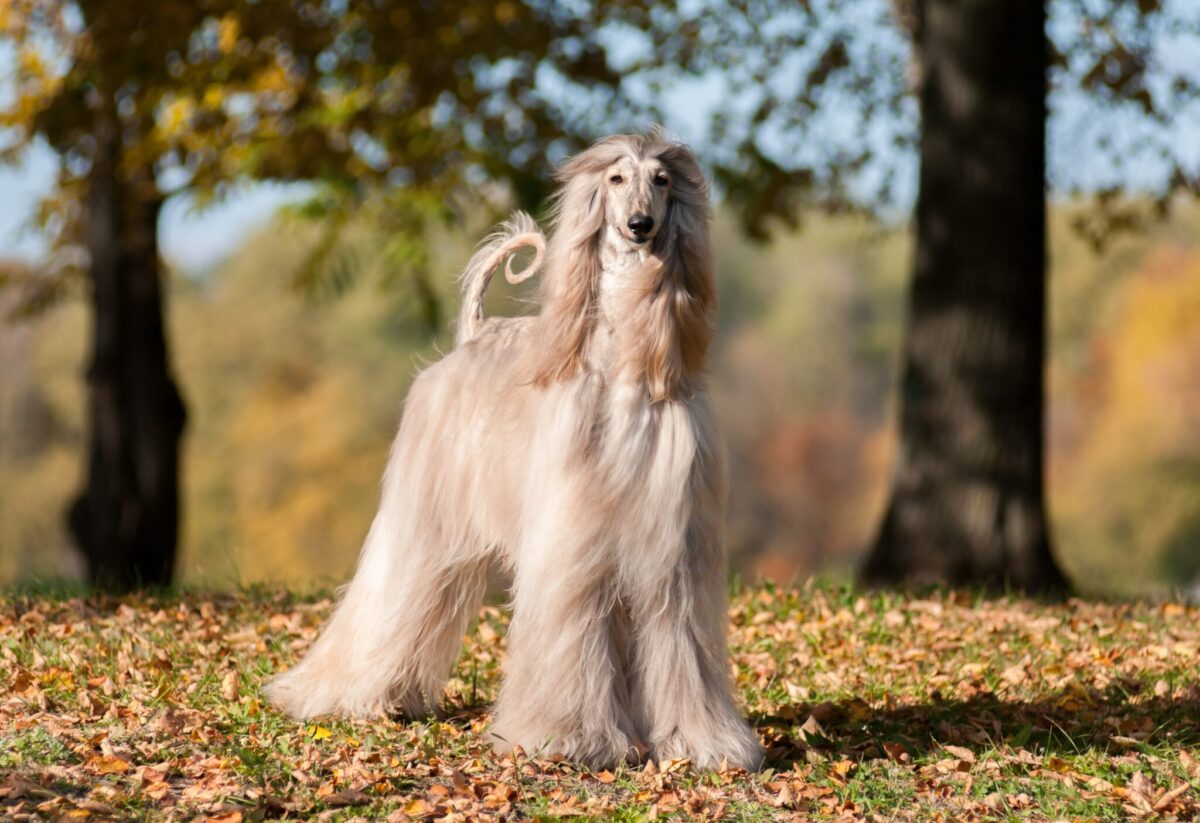 Shutterstock
Shutterstock
Afghan Hounds are known for their elegant, flowing coats, but maintaining that beautiful hair requires frequent care. Their long hair is prone to tangling, especially around the legs and ears, and can become dry if not bathed and conditioned regularly. Afghan Hounds benefit from baths every two to four weeks to keep their coats clean, soft, and tangy-free. After bathing, their hair should be carefully brushed and dried to prevent matting and maintain their coat’s signature smooth texture.
Yorkshire Terrier
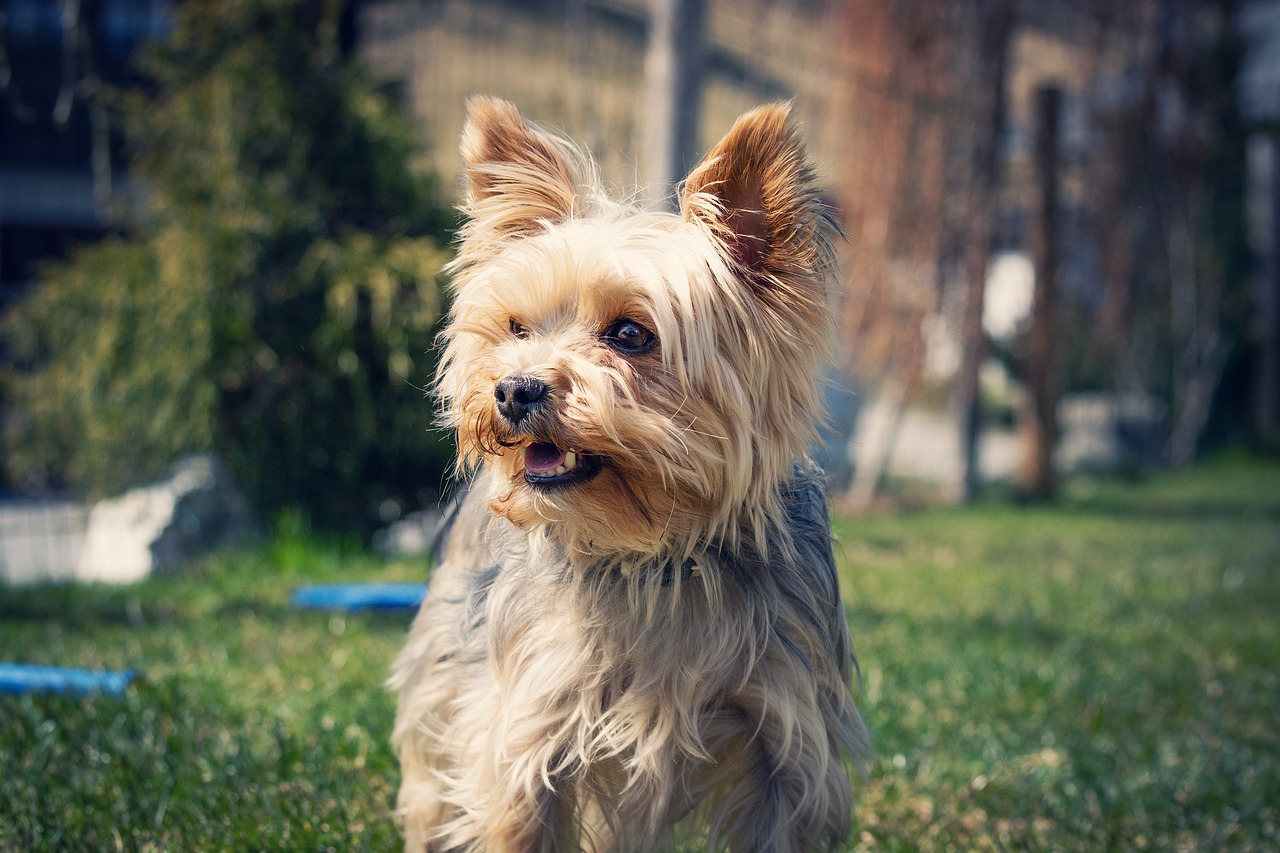 Shutterstock
Shutterstock
Yorkshire Terriers, or Yorkies, have long, silky coats that require frequent grooming to stay healthy. Their hair is prone to becoming oily and tangled, so regular baths are essential to keep their coat in good condition. Yorkies should be bathed every two to three weeks, with special attention to conditioning their coats to maintain shine and softness. Since their fine hair can become matted if not properly cared for, brushing and trimming after a bath are key to preventing tangles.
West Highland White Terrier
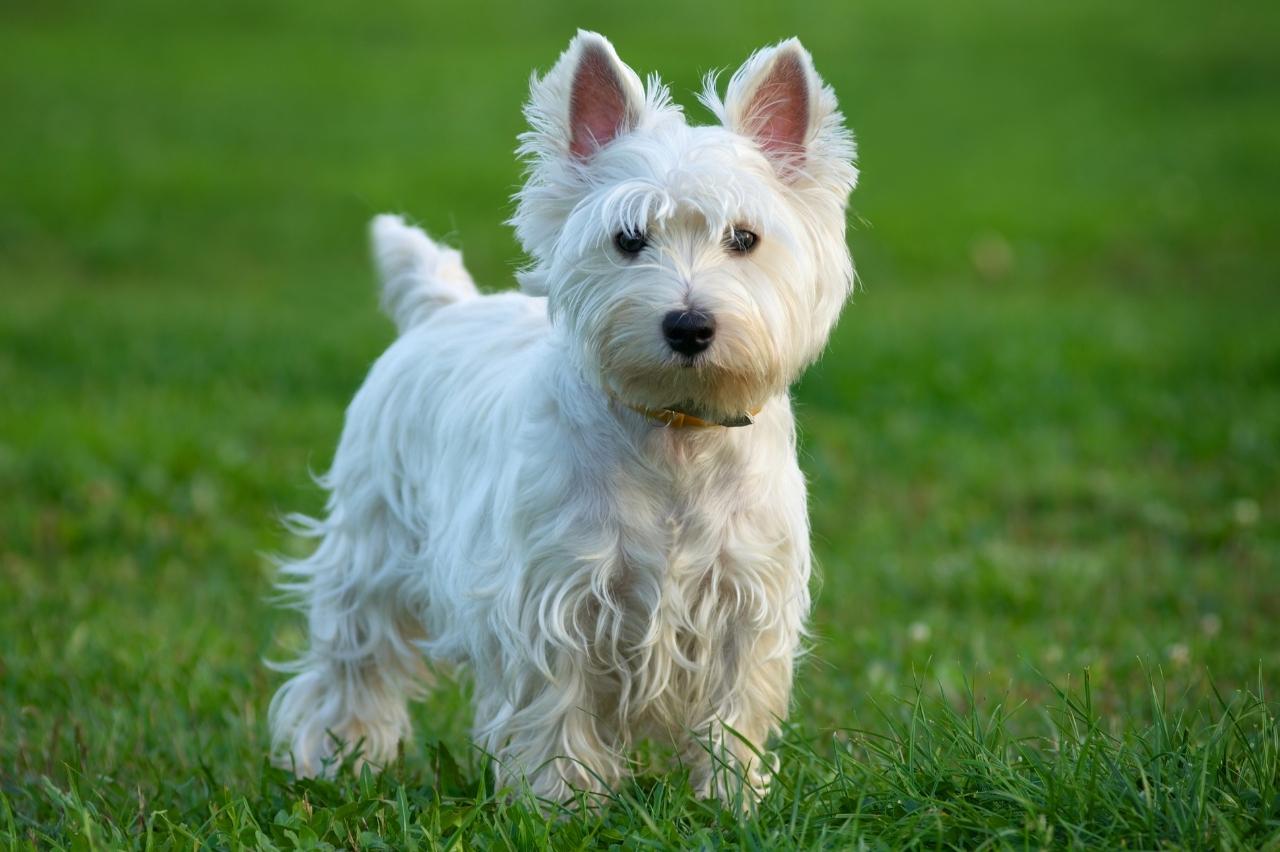 Shutterstock
Shutterstock
West Highland White Terriers, or Westies, have bright white coats that can quickly become dirty, especially if they love to dig or play outside. Their coarse hair requires regular baths to maintain its color and texture. Westies also have sensitive skin that can dry or irritate if not cleaned regularly. Bathing a Westie every two to four weeks helps remove dirt and excess oils, keeping their coats bright and healthy. A whitening shampoo can help maintain their iconic white coat while protecting their skin.
Havanese
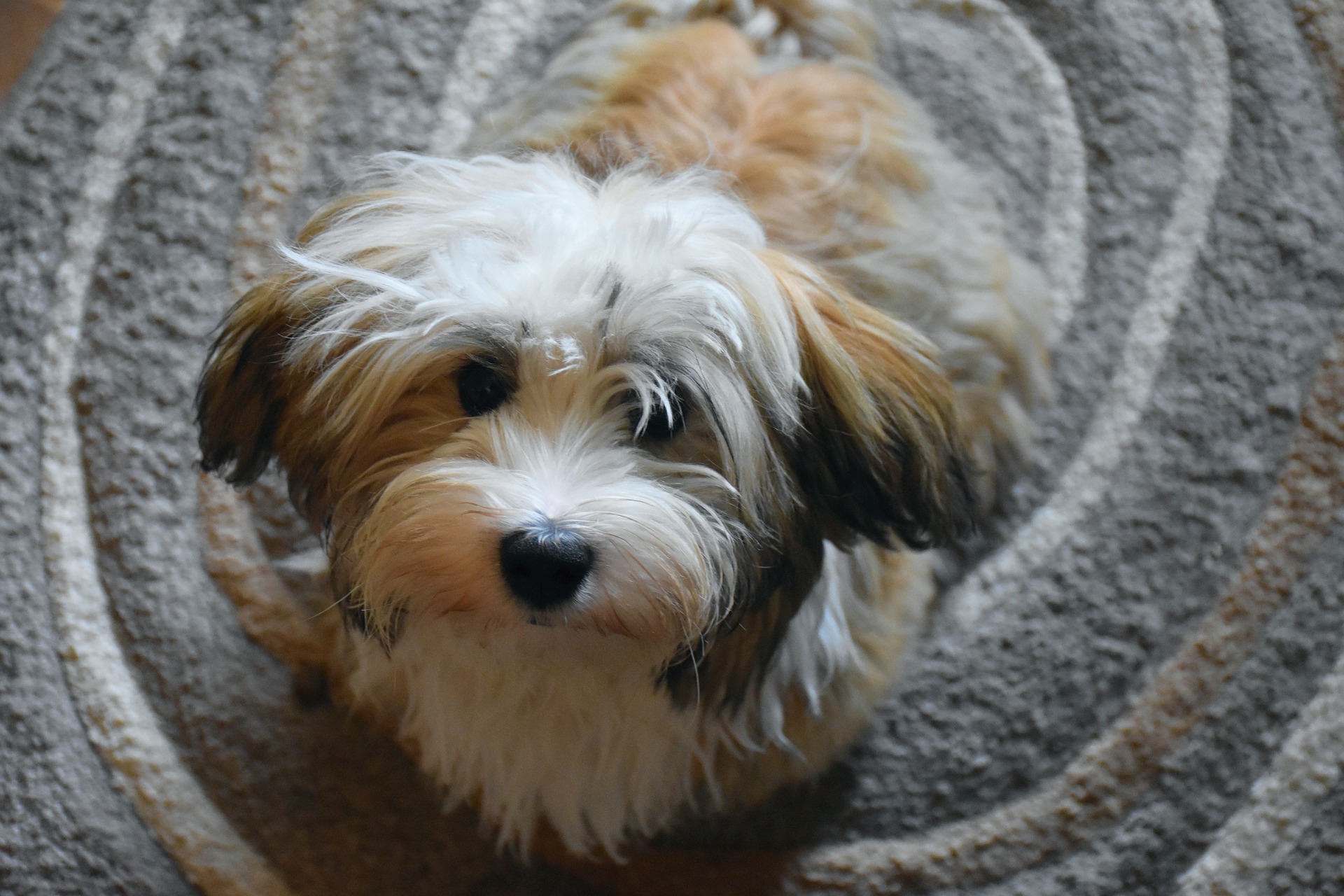 Shutterstock
Shutterstock
The Havanese is a small breed with a long, flowing coat that requires consistent grooming and bathing to stay clean and mat-free. Their coats can easily become tangled and dirty, especially since Havanese love to play outside. A bath every two to three weeks helps remove dirt and excess oil, keeping their coats shiny and soft. Since their hair is prone to matting, regular conditioning after a bath is essential to maintain the health of their coat. Frequent brushing and grooming between baths help reduce the risk of tangles.
Lhasa Apso
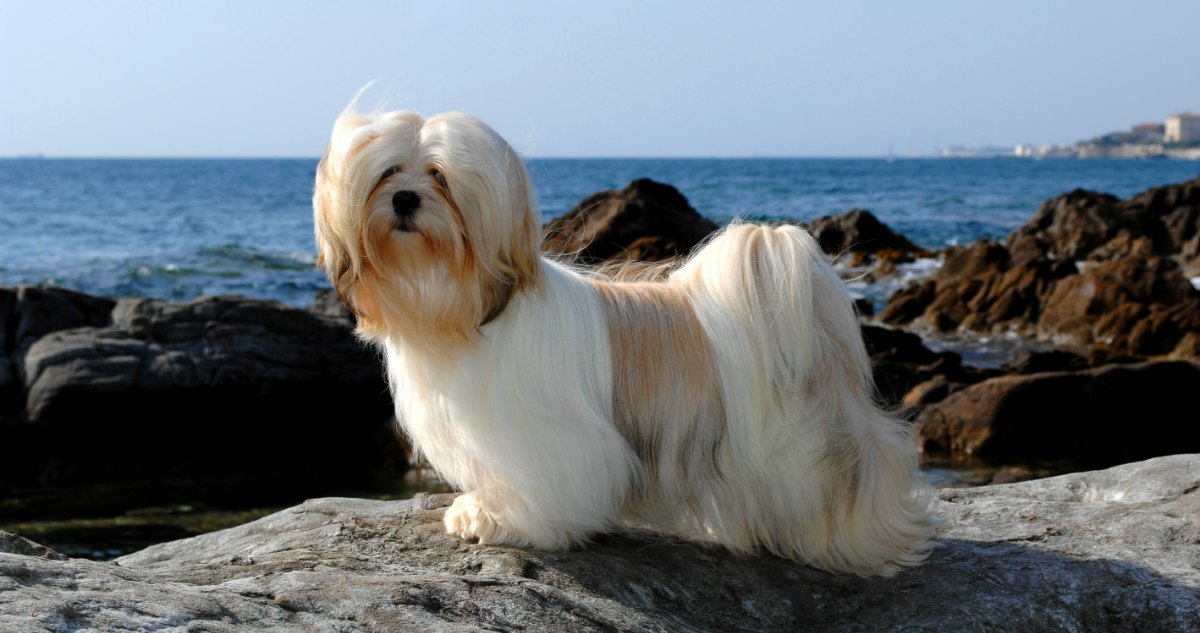 Shutterstock
Shutterstock
Lhasa Apsos are small dogs with long, dense coats that require regular bathing to prevent matting and tangling. Their thick hair can easily trap dirt and debris, especially around the face and paws, so frequent baths are essential to keep their coats clean. Lhasa Apsos should be bathed every two to four weeks to remove dirt and oils, with careful attention to drying and brushing after each bath. Their luxurious coats require extra grooming to maintain their health and prevent mats from forming, especially in humid or dirty environments.
Bichon Frise
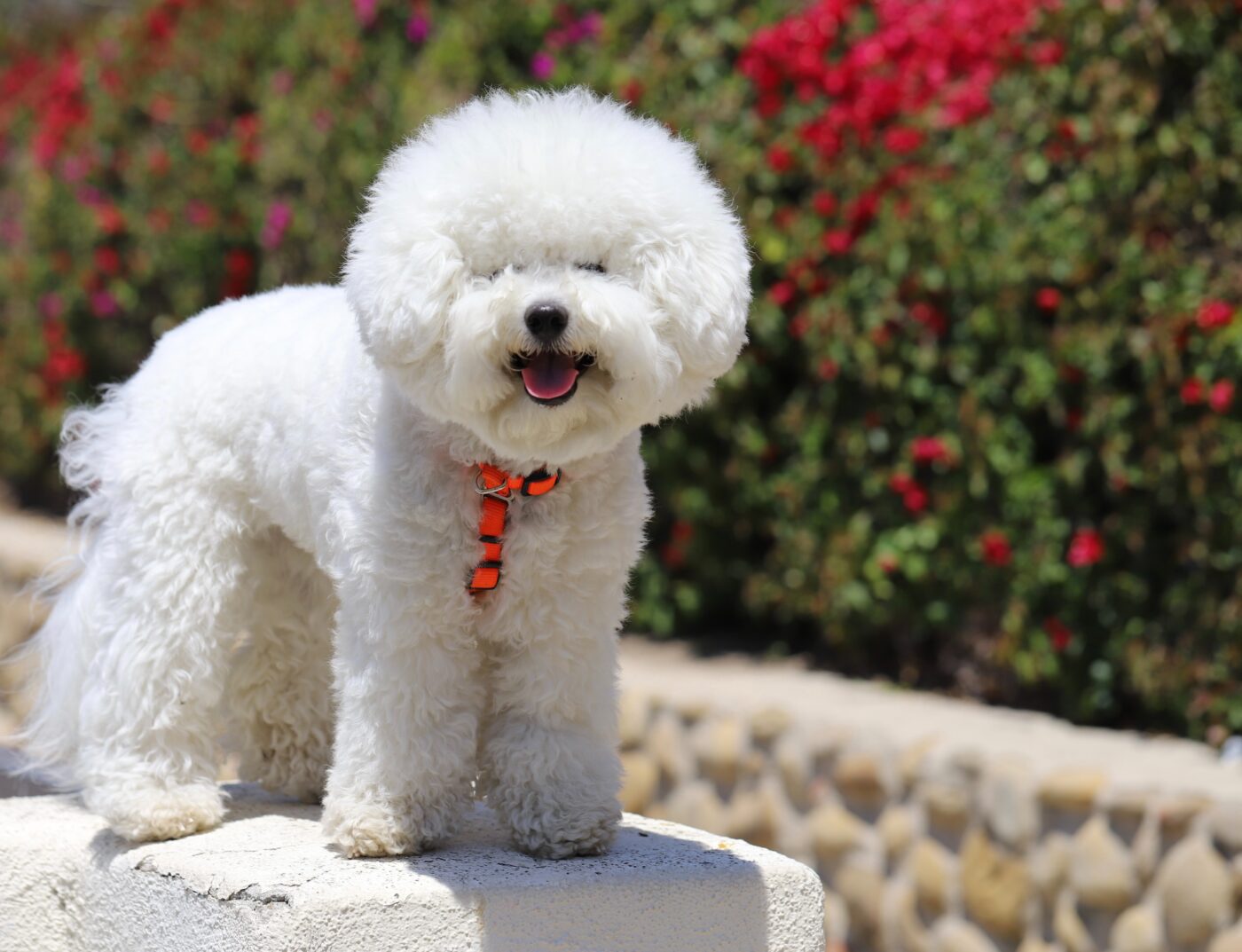 Shutterstock
Shutterstock
Bichon Frises have soft, curly coats that are prone to matting and require frequent grooming to stay in good condition. Their curls can easily trap dirt and oils, leaving a greasy coat if not regularly bathed. Bichons should be bathed every two to four weeks to keep their coats clean and fluffy. Regular conditioning and brushing after baths help maintain their coat’s texture and prevent tangles. Frequent grooming is key to keeping a Bichon’s coat healthy and free from mats, especially in areas prone to tangling, like behind the ears and around the legs.
Siberian Husky
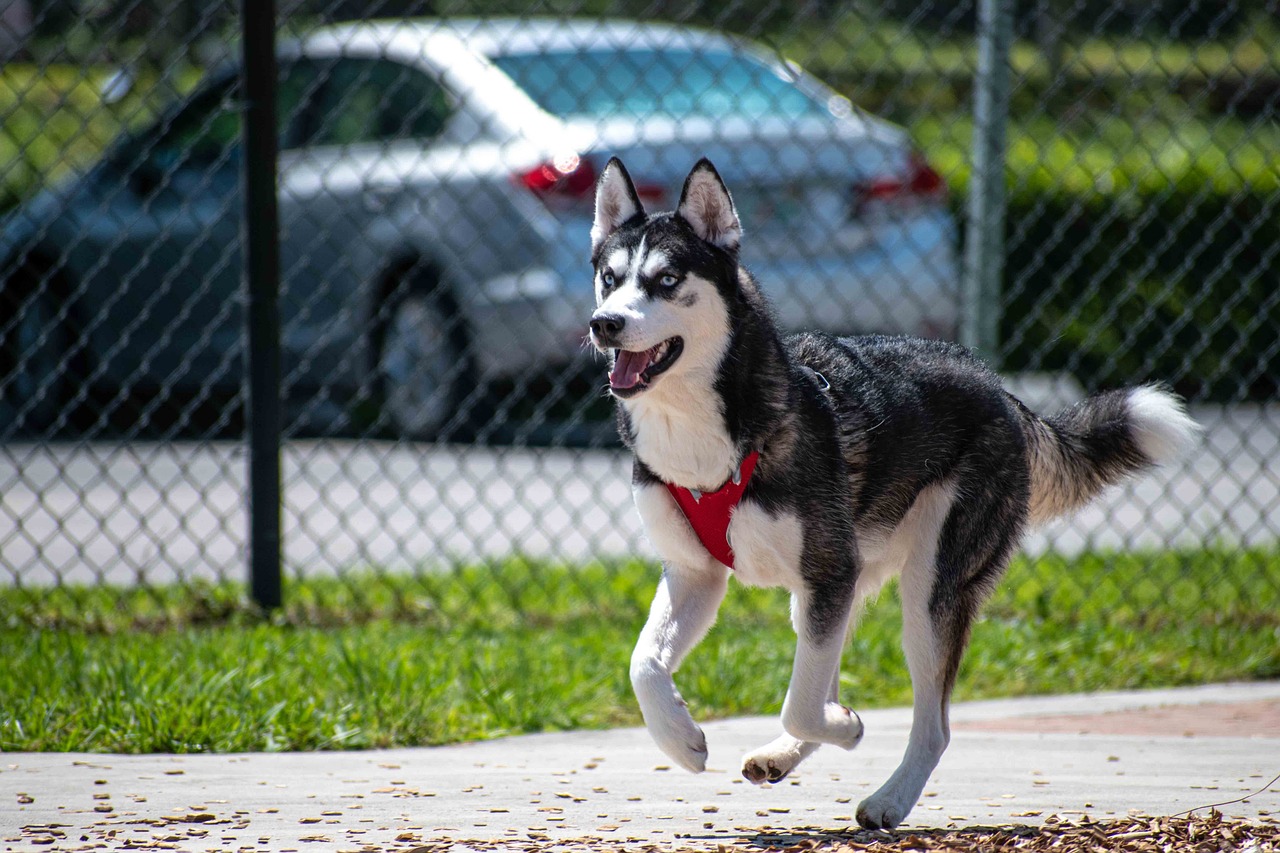 Shutterstock
Shutterstock
Siberian Huskies have a thick double coat that sheds significantly, especially during shedding seasons. While they are generally clean dogs, their dense coats can trap dirt, oils, and other debris. Bathing a Husky every 6 to 8 weeks can help keep their coat in top condition and reduce odor. Because their fur can get quite thick, it’s important to use high-quality shampoos and conditioners that nourish the coat. Regular bathing also helps reduce the buildup of dead hair, making grooming sessions more effective.
Golden Retriever
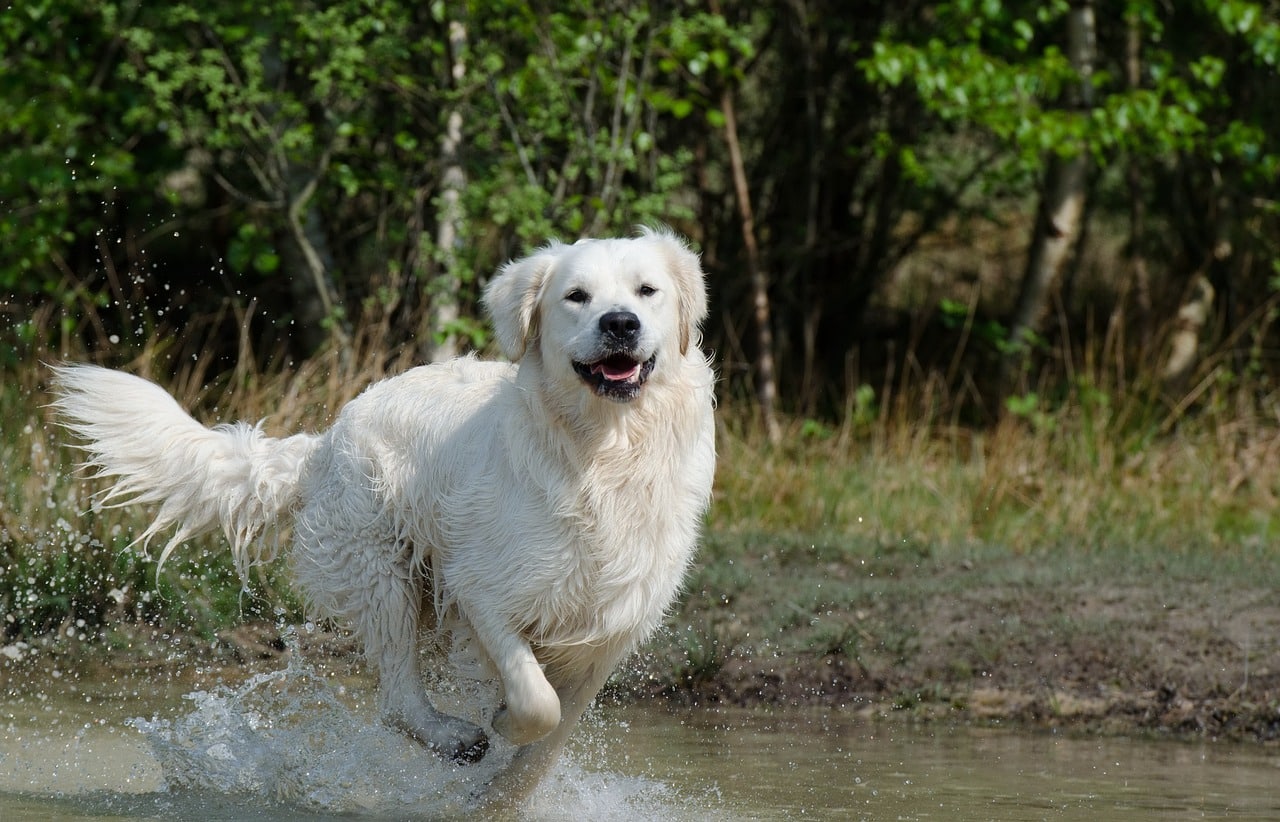 Shutterstock
Shutterstock
Golden Retrievers are known for their thick, water-repellent double coats, which require regular maintenance. While their coats are beautiful, they are prone to collecting dirt, debris, and oils, which can lead to an unpleasant odor. Regular bathing, at least every 4 to 6 weeks, is essential to keep their coat clean and shiny. Bathing helps remove dirt and dead hair, while also maintaining skin health. Golden Retrievers also tend to love the water, which can make them more prone to getting dirty and needing more frequent baths.
Beagle
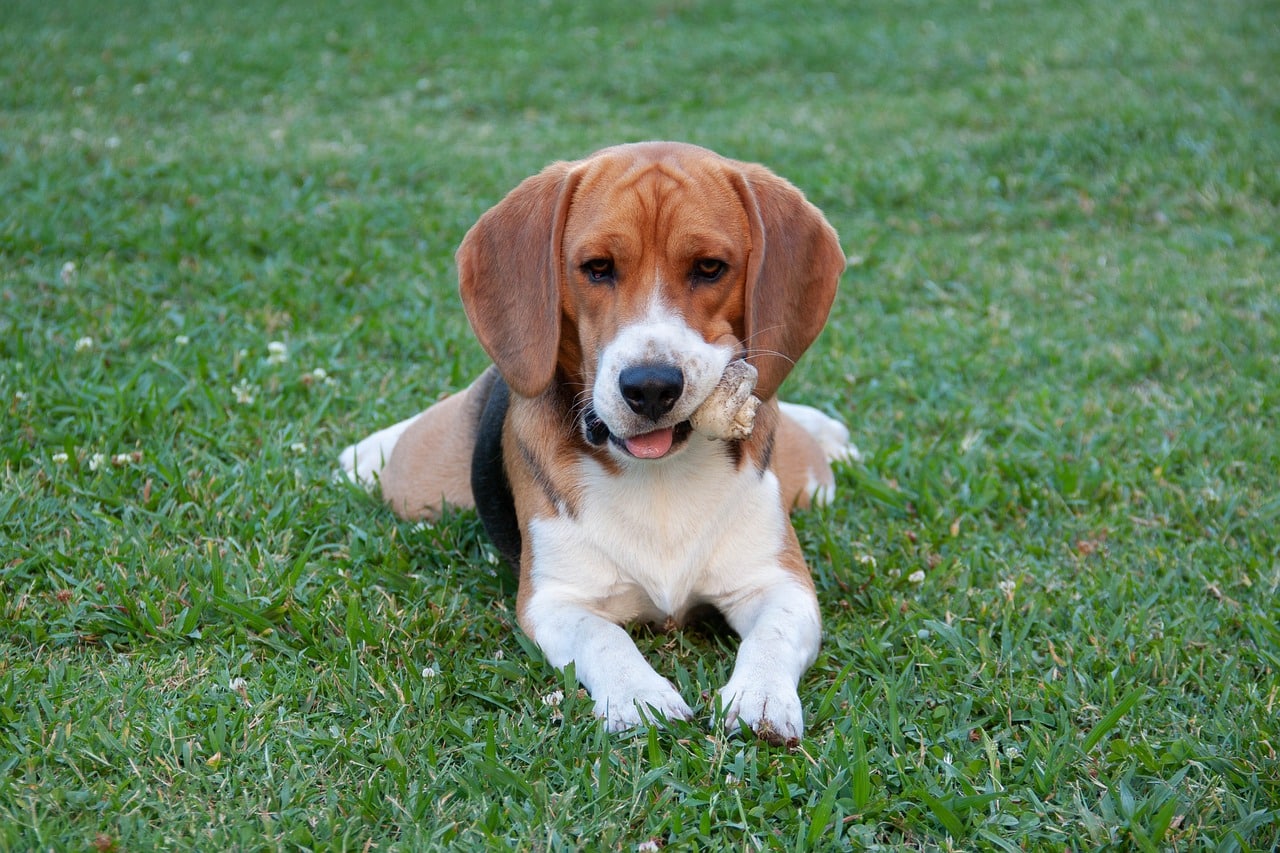 Shutterstock
Shutterstock
Beagles are known for their love of exploring and following their noses, which often leads them into messy situations. With their short coats, dirt and oils can accumulate quickly, especially after outdoor adventures. Bathing Beagles every 4 to 6 weeks can help keep them clean and free from odors. They are also prone to shedding, so regular baths combined with brushing help manage their shedding while keeping their skin healthy. Beagles also tend to have oily skin, making consistent baths a necessity.
Saint Bernard
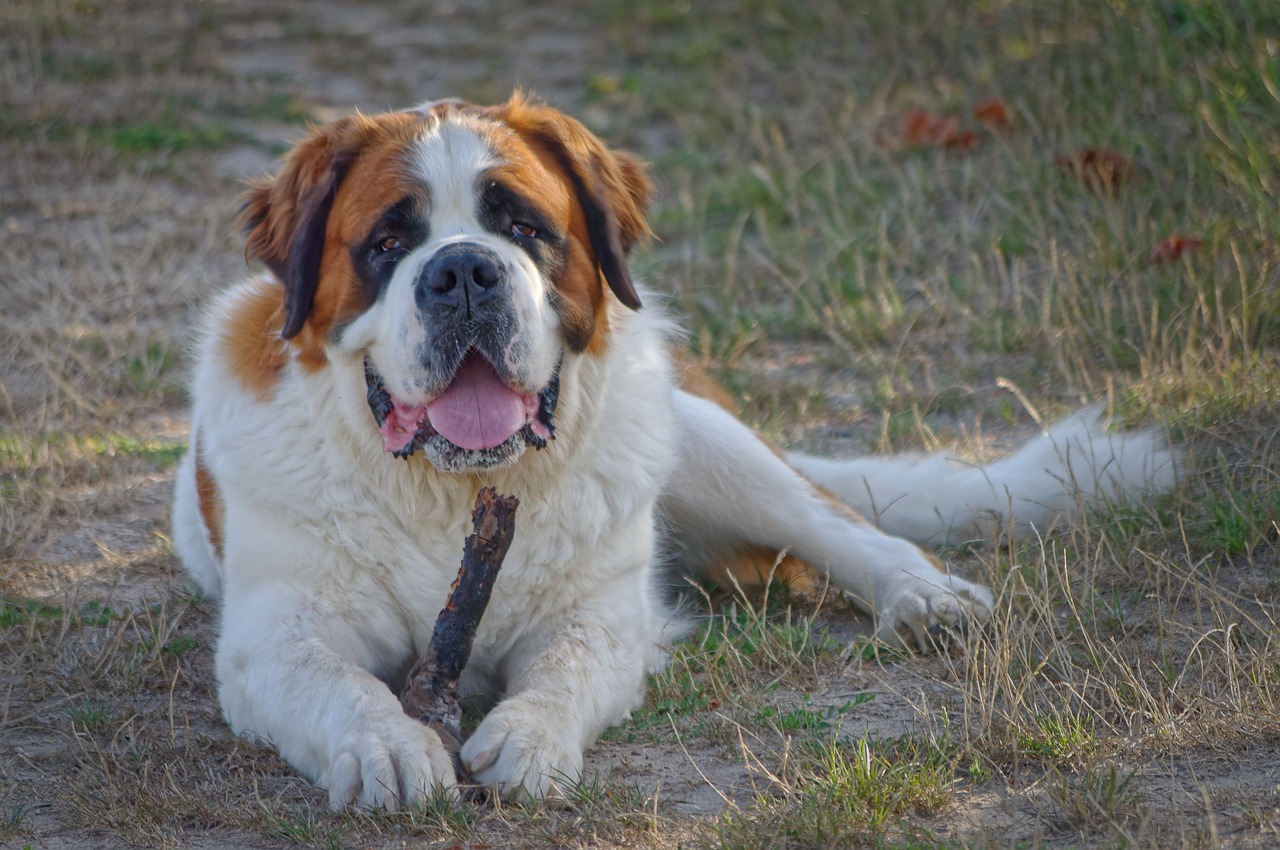 Shutterstock
Shutterstock
Saint Bernards have thick, heavy coats that can easily trap dirt and moisture, especially since they are known for their drooling. Their coat requires regular upkeep, and bathing every 4 to 6 weeks is essential to prevent matting and to keep them smelling fresh. Regular baths also help remove drool, dirt, and debris that can accumulate in their fur. Saint Bernards are large dogs with dense coats, so it’s important to use appropriate grooming tools and high-quality shampoo to maintain their skin and coat health.
Dalmatian
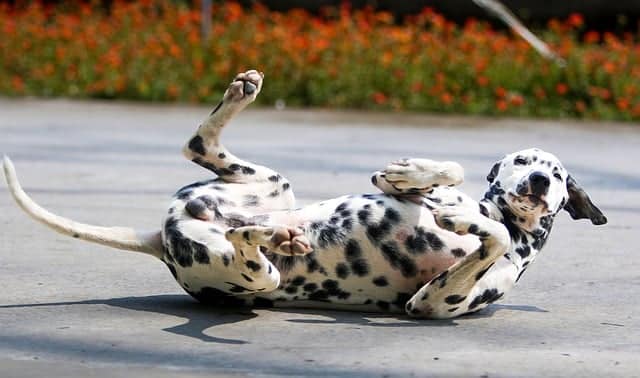 Shutterstock
Shutterstock
Dalmatians have short, dense coats that can become greasy and accumulate dirt fairly quickly. While they are low-maintenance in terms of grooming, their coat does need regular bathing every 6 to 8 weeks to maintain its sleek appearance. Dalmatians are also prone to skin allergies, so using a mild shampoo that is gentle on the skin is crucial. Bathing not only keeps their coat looking its best but also helps reduce the oils that can contribute to skin irritation.
Newfoundland
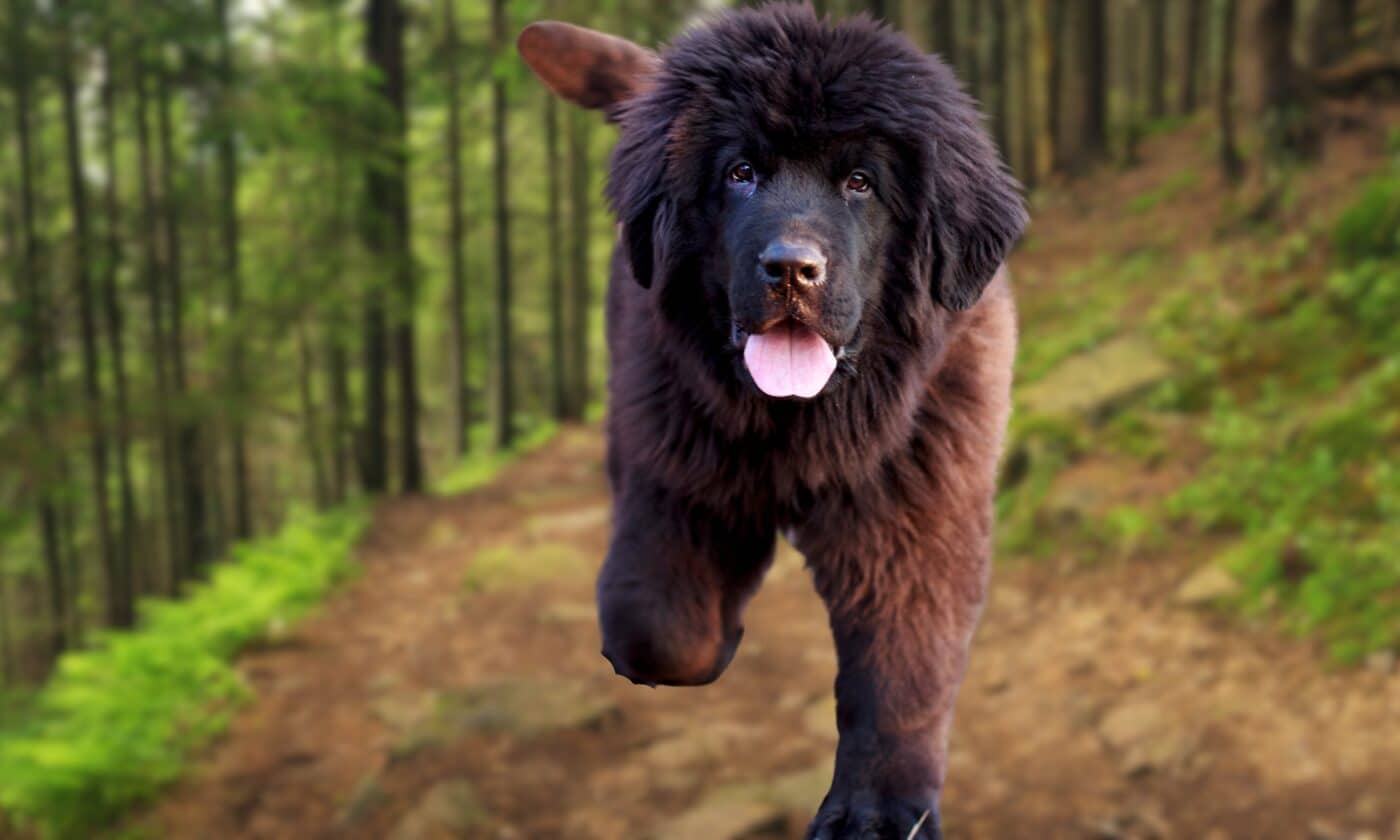 Shutterstock
Shutterstock
Newfoundlands have thick, water-resistant coats designed for cold water work, but their dense fur can easily become dirty and matted if not properly cared for. Bathing a Newfoundland every 4 to 6 weeks helps remove dirt, oils, and dead hair from their coat. Regular baths also reduce the risk of skin infections, which can occur when their dense coat traps moisture. Due to their size and coat type, Newfoundlands require thorough bathing and rinsing to ensure all shampoo is removed from their thick fur.
Boxer
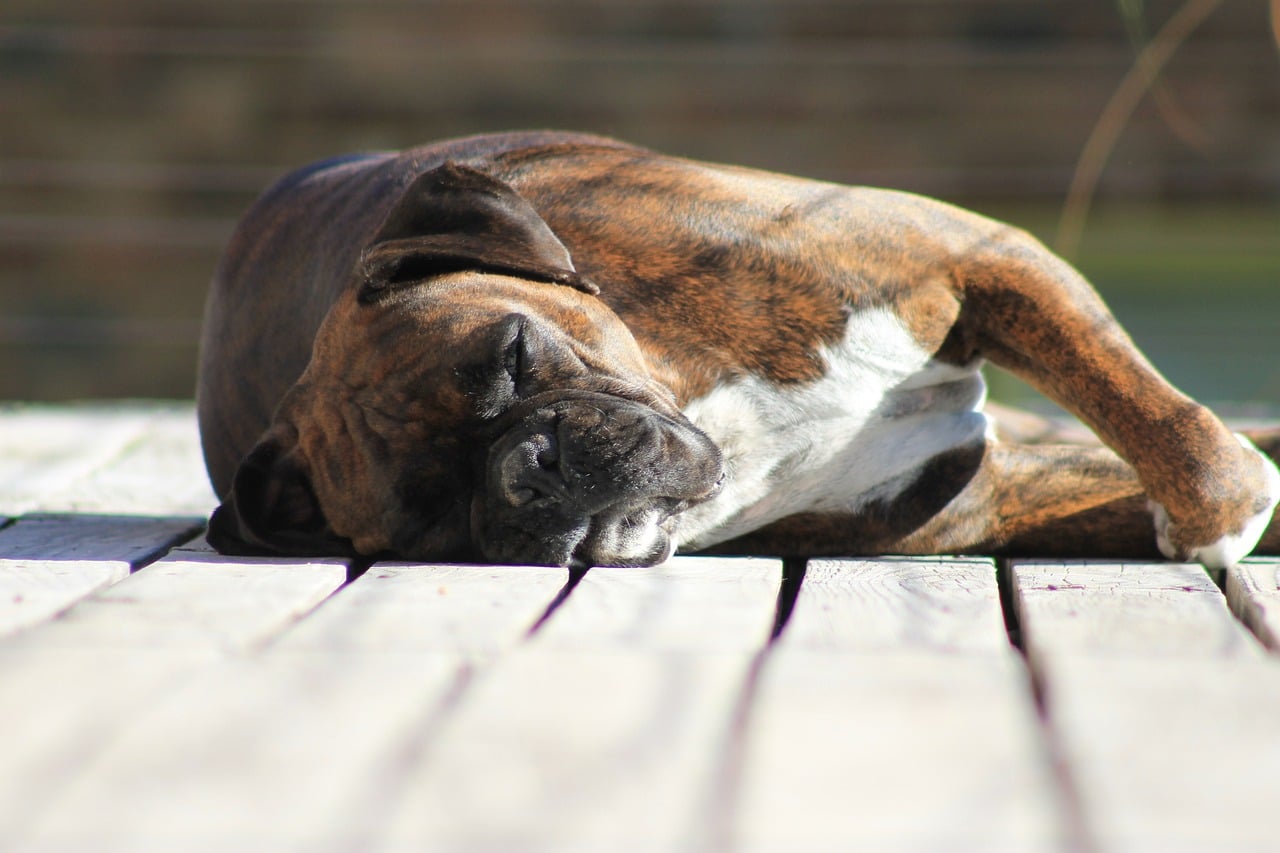 Shutterstock
Shutterstock
Boxers have short coats, but their skin tends to produce oils that can lead to a strong odor if not regularly bathed. Bathing a Boxer every 4 to 6 weeks helps control oil buildup and keeps their coat looking sleek and shiny. They are prone to allergies and sensitive skin, so it’s important to use gentle shampoos that won’t irritate their skin. Regular baths also help reduce the risk of skin infections, which can occur due to the accumulation of dirt and oils on their skin.
Great Pyrenees
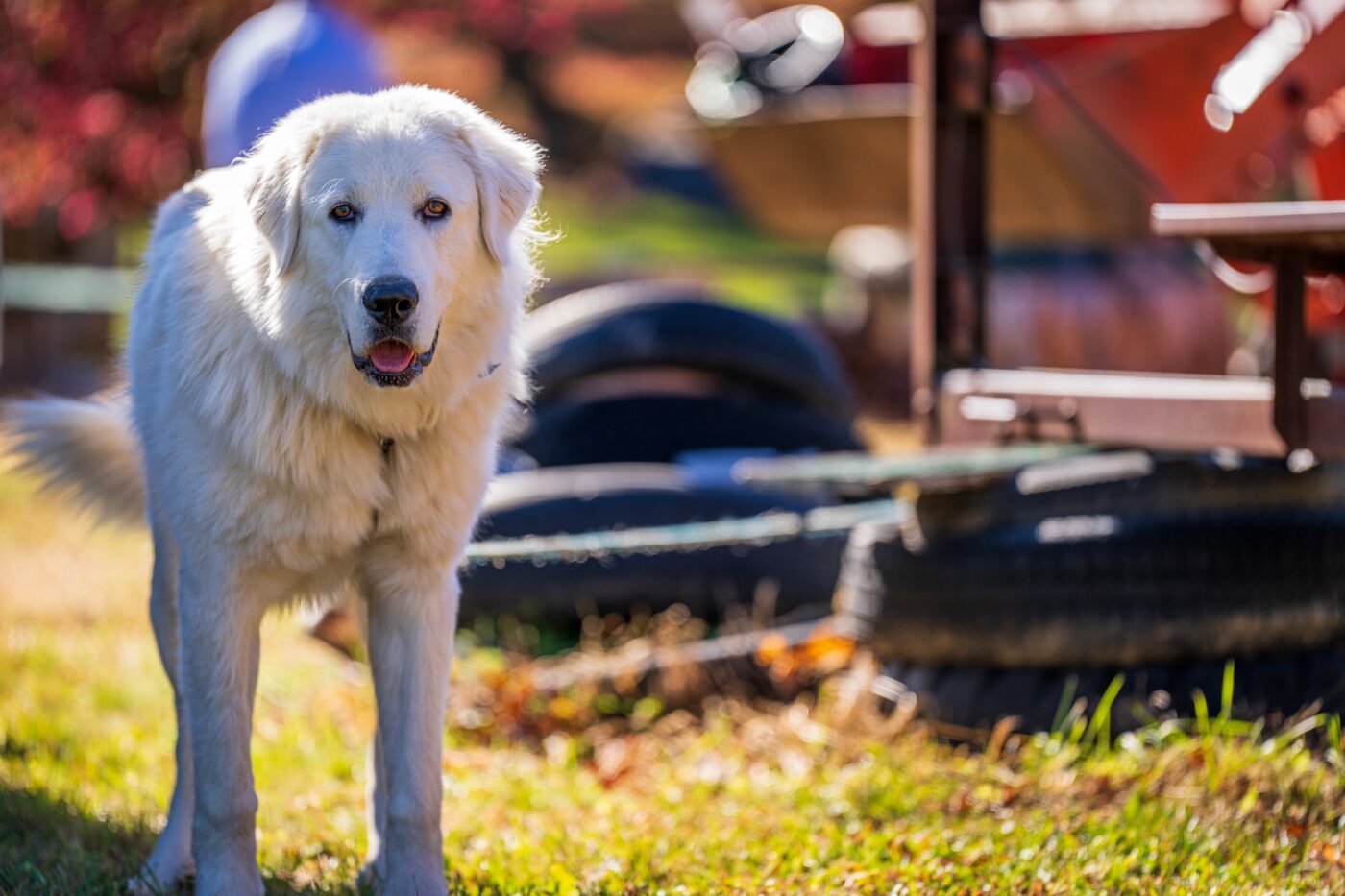 Shutterstock
Shutterstock
The Great Pyrenees has a thick double coat that is prone to collecting dirt, debris, and moisture, especially if the dog spends time outdoors. While their coat naturally repels dirt to some extent, regular bathing every 4 to 6 weeks helps keep it clean and free from odors. Bathing also helps prevent matting and reduces shedding, especially during the spring and fall shedding seasons. Given the thickness of their coat, it’s essential to thoroughly rinse out all shampoo to avoid skin irritation.
Bernese Mountain Dog
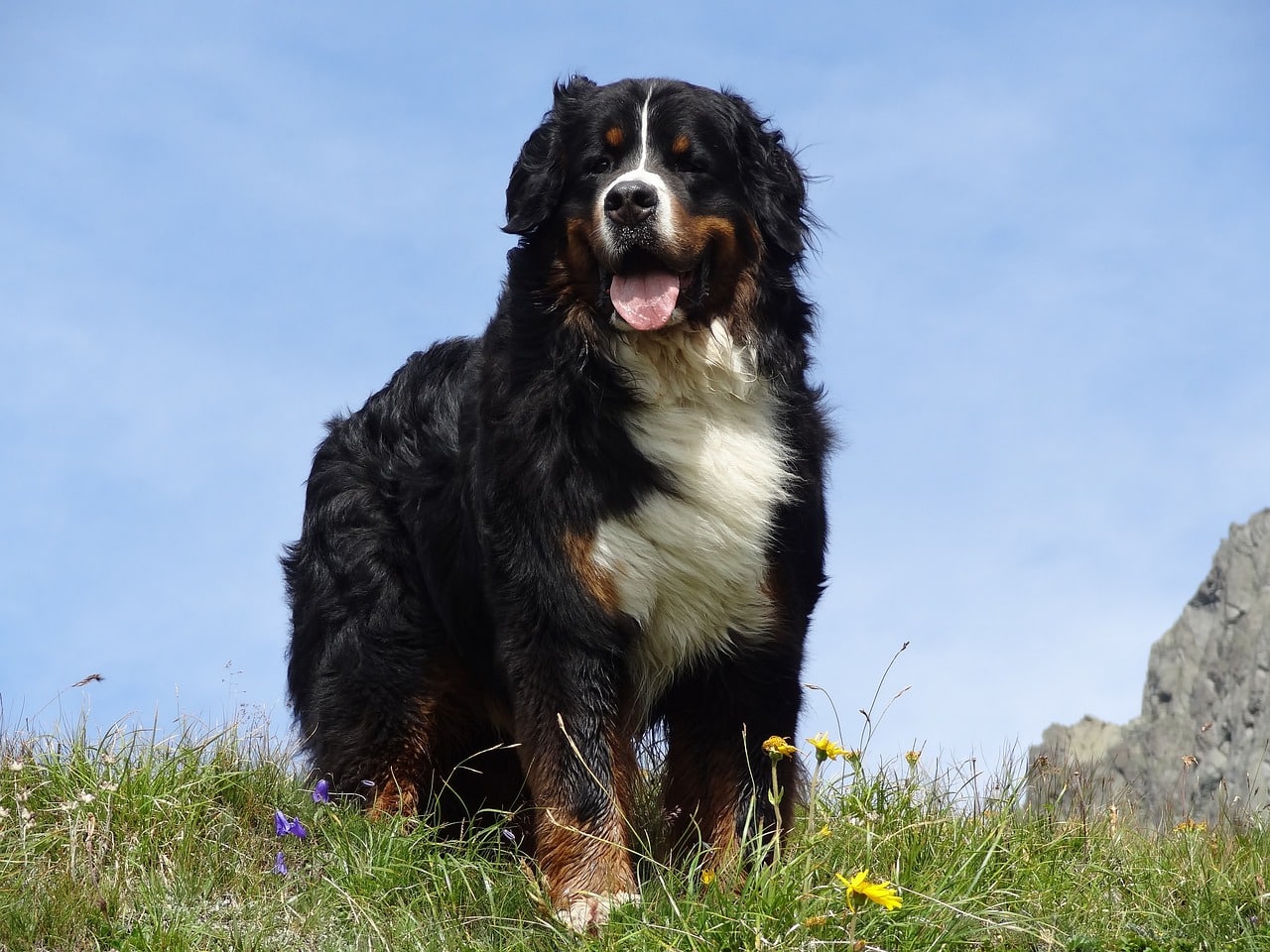 Shutterstock
Shutterstock
Bernese Mountain Dogs have a beautiful, thick double coat that requires regular grooming and bathing. Their fur can become matted and trap dirt and oils if not maintained properly. Bathing them every 4 to 6 weeks helps remove debris and dead hair, especially during shedding seasons. Bernese Mountain Dogs are prone to skin issues, so using high-quality, moisturizing shampoos can help keep their coat and skin in top condition. Regular bathing also helps reduce the risk of skin infections and keeps their coat looking glossy and clean.
American Eskimo Dog
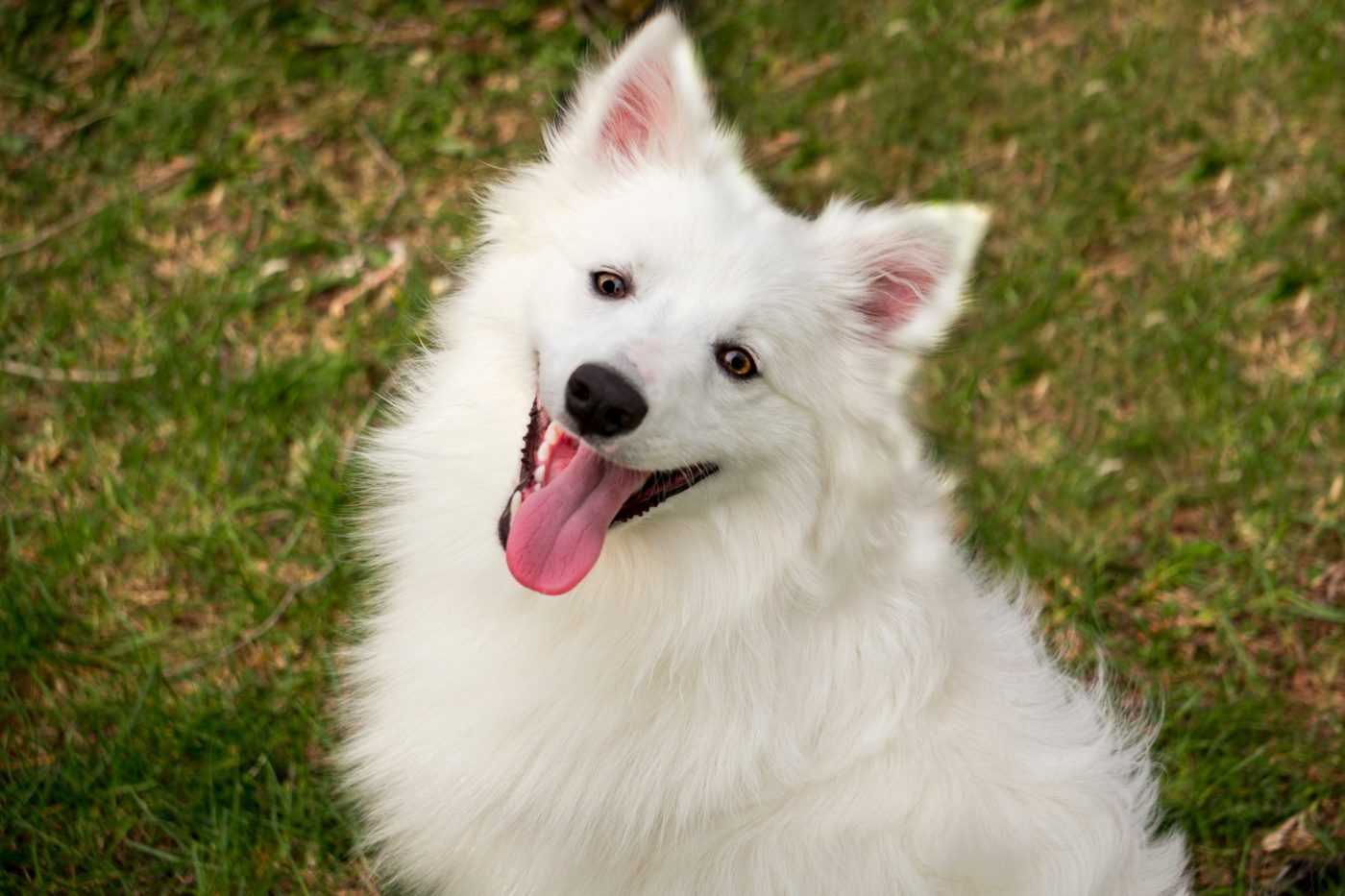 Shutterstock
Shutterstock
The American Eskimo Dog has a dense double coat that is prone to shedding and matting if not properly cared for. Frequent bathing every 6 to 8 weeks helps remove dirt and oils that accumulate in their coat, especially during shedding season. This breed also benefits from regular baths to maintain the bright white color of their coat. It’s important to use a whitening or brightening shampoo to keep their fur looking vibrant and clean. Regular bathing helps reduce shedding and prevents matting, making grooming easier.
Pekingese
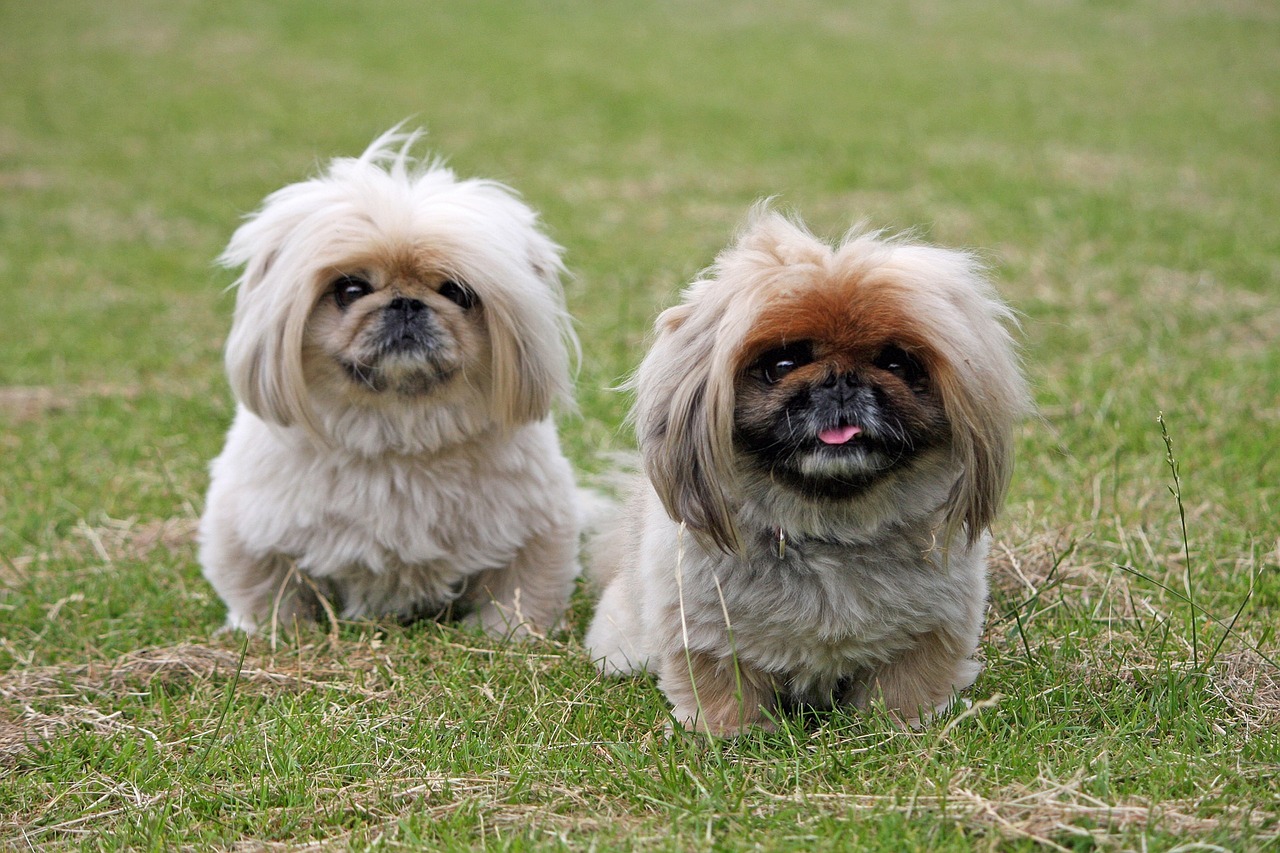 Shutterstock
Shutterstock
Pekingese have long, luxurious coats that require regular grooming and bathing to stay clean and tangle-free. Bathing them every 4 to 6 weeks helps keep their coat looking healthy and shiny. Due to their long fur, Pekingese are prone to matting, especially around the ears, legs, and underbelly. Regular baths combined with brushing help prevent mats from forming and reduce shedding. It’s important to use a gentle shampoo and conditioner to maintain the health of their coat and skin.
Irish Setter
 Shutterstock
Shutterstock
Irish Setters have long, flowing coats that can easily become tangled and dirty if not regularly bathed. Bathing them every 4 to 6 weeks helps keep their coat clean, shiny, and free from mats. Irish Setters are prone to skin allergies, so using a hypoallergenic or gentle shampoo is important to avoid skin irritation. Regular baths also help reduce shedding and keep their coat looking its best. Given the length and texture of their coat, it’s important to thoroughly rinse out all shampoo and conditioner.
Alaskan Malamute
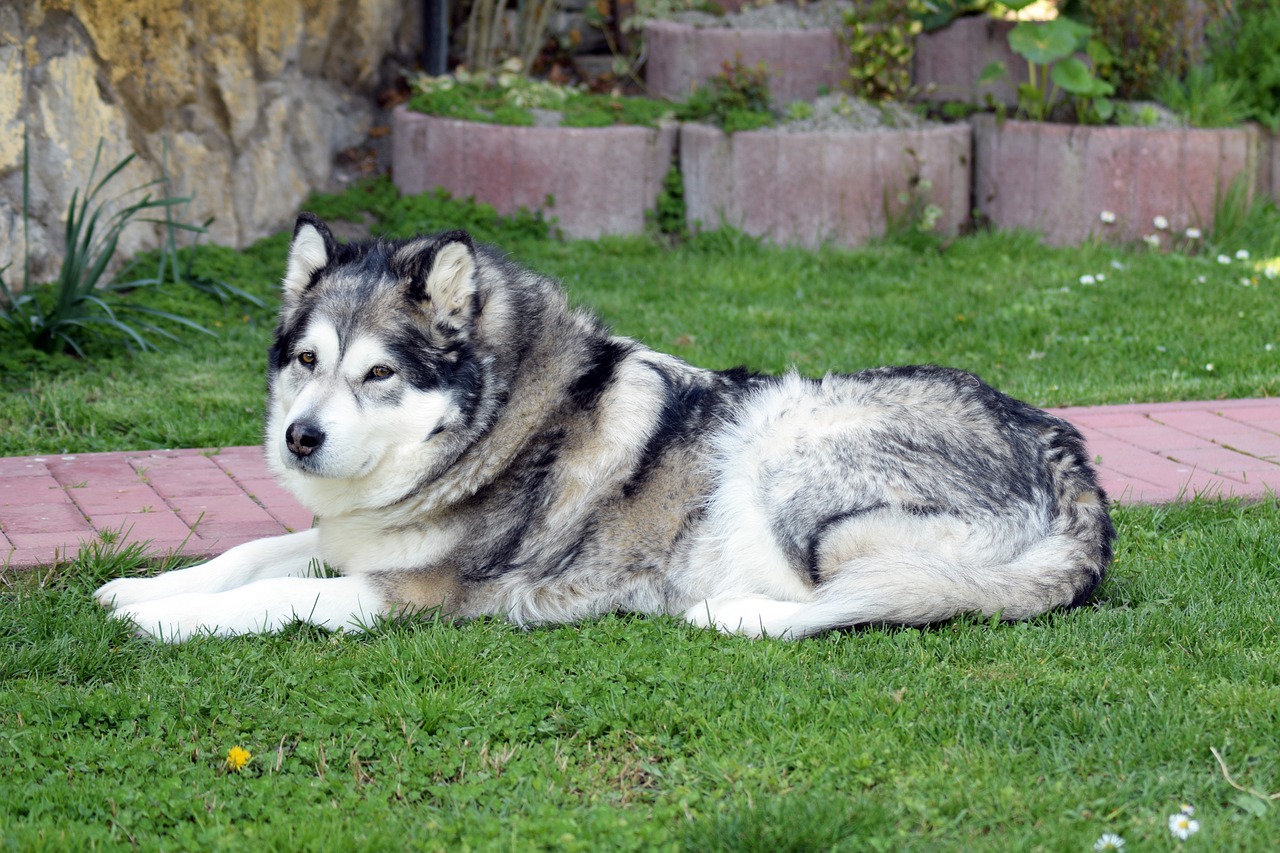 Shutterstock
Shutterstock
Alaskan Malamutes have thick, dense double coats that require regular maintenance to stay clean and healthy. While they don’t need frequent bathing, bathing them every 6 to 8 weeks helps remove dirt, oils, and dead hair from their coat. Malamutes shed heavily, especially during the spring and fall, so regular baths help reduce the amount of loose hair. Due to the thickness of their coat, it’s essential to use a good-quality shampoo and thoroughly rinse to avoid skin irritation.
Bathing for a Healthy, Beautiful Coat
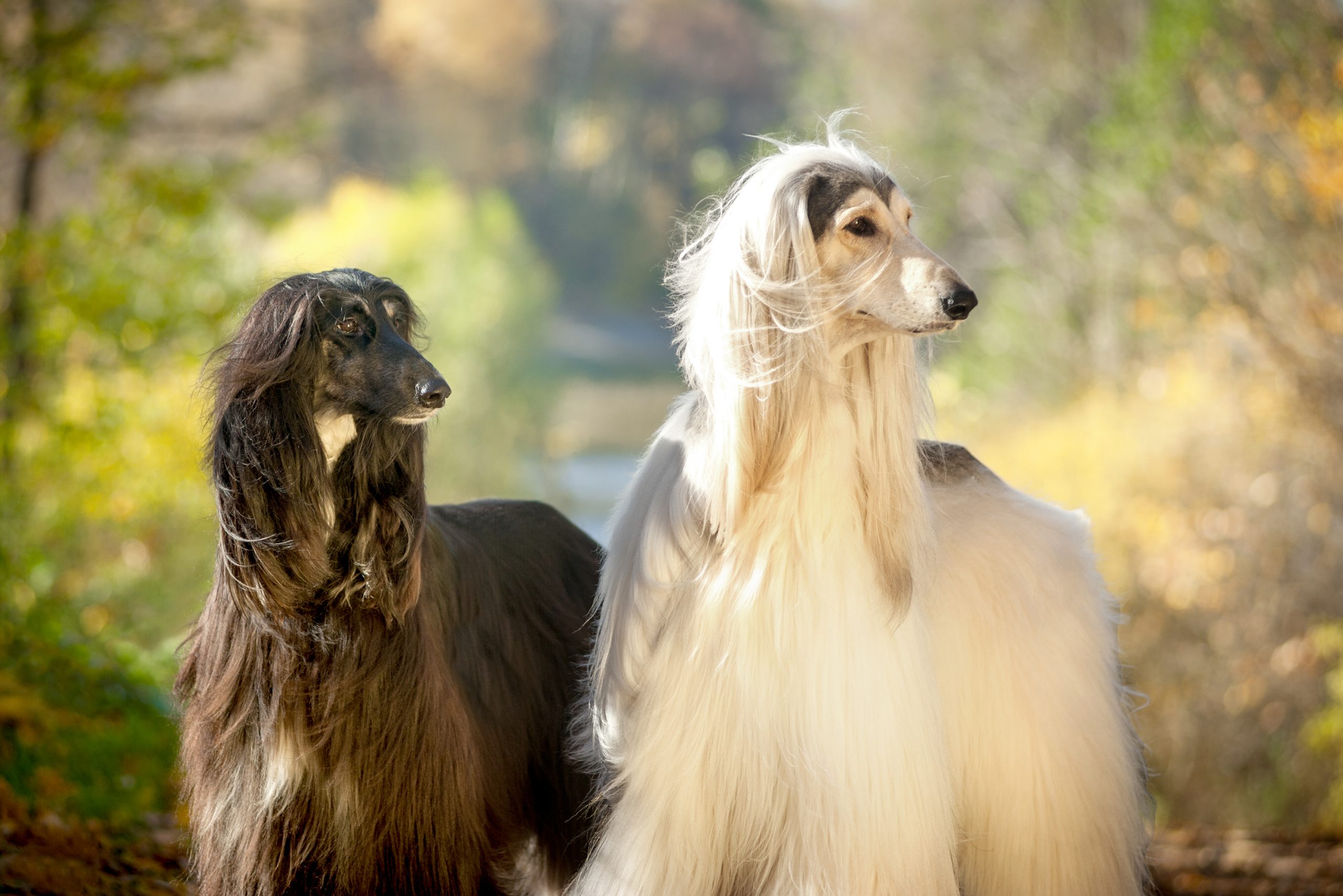 Shutterstock
Shutterstock
For these dog breeds, frequent bathing is essential to maintaining their coat’s health and appearance. Whether it’s to prevent matting, control oil production, or keep their skin clean, regular baths help these breeds stay comfortable and odor-free. While it may require extra effort, frequent grooming and bathing are essential for these high-maintenance breeds, ensuring they remain happy, healthy, and looking their best. If you’re considering one of these breeds, be prepared for a regular bathing schedule to keep your dog’s coat in top condition.
 Toledo, United States.
Toledo, United States.